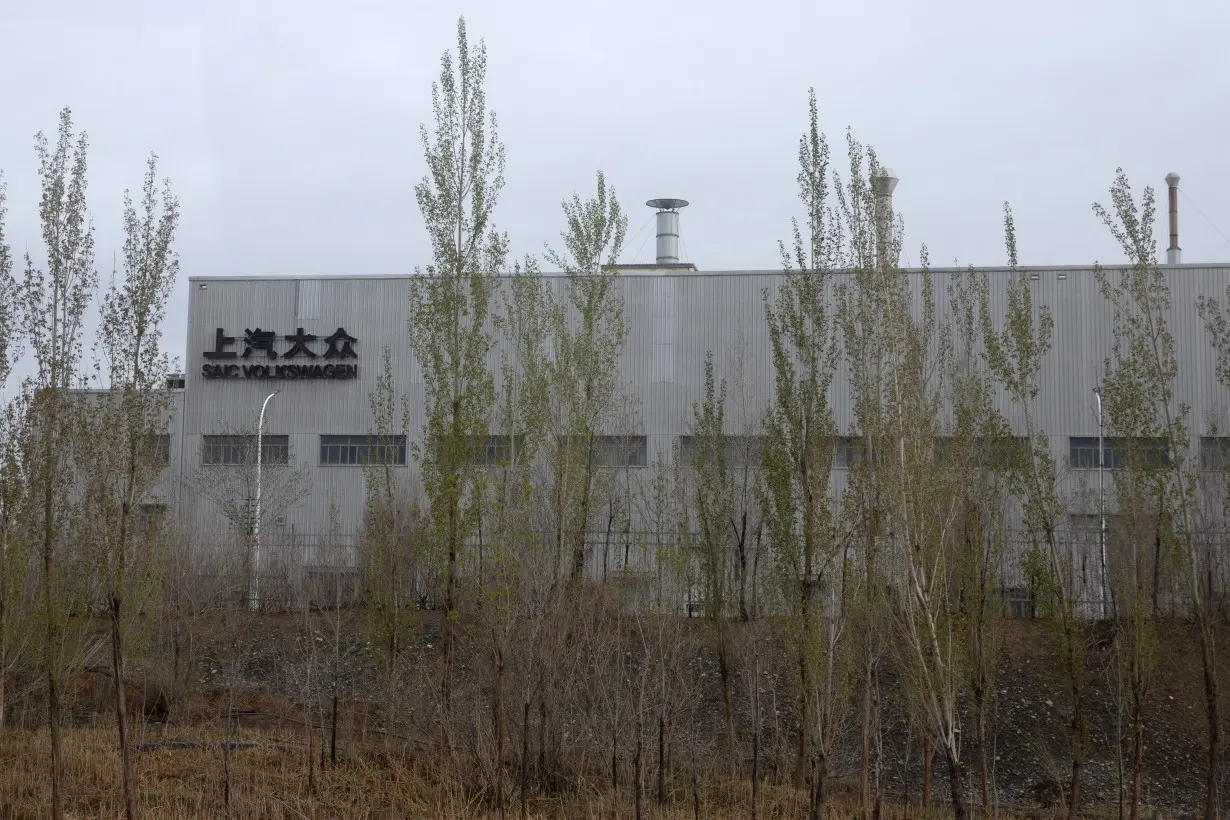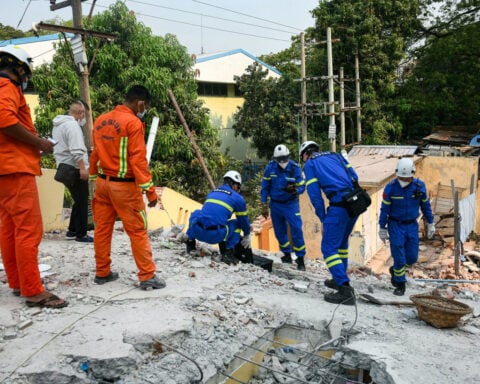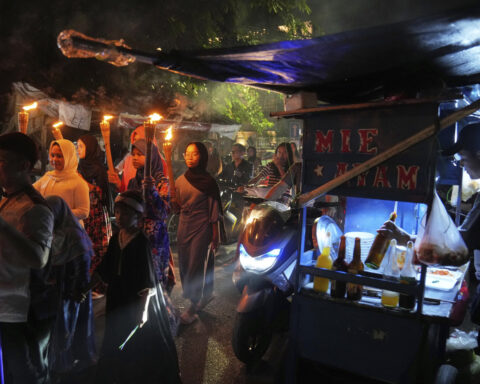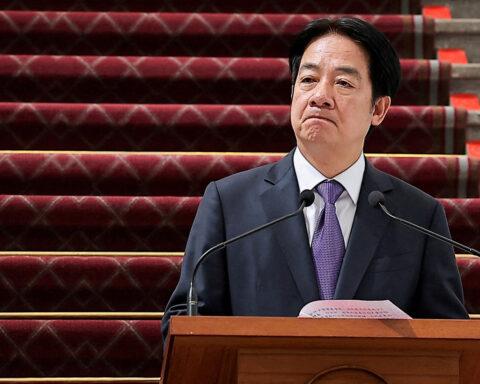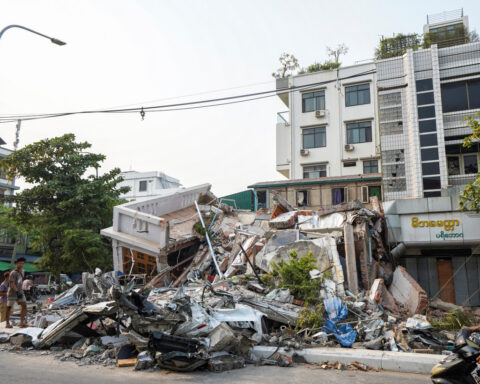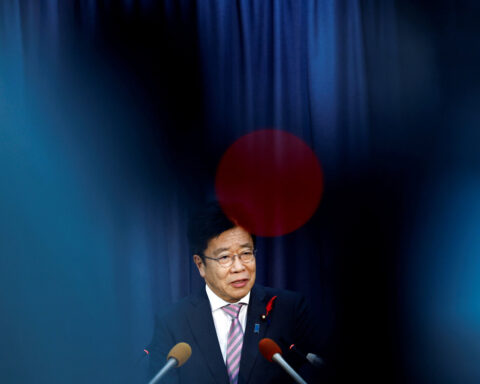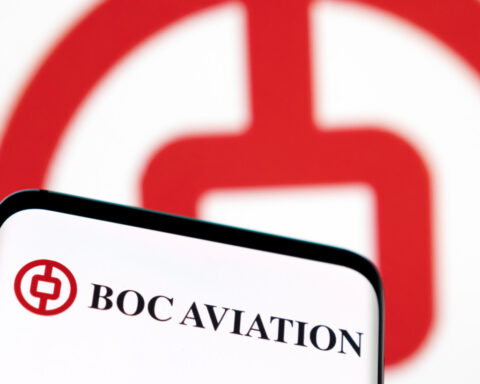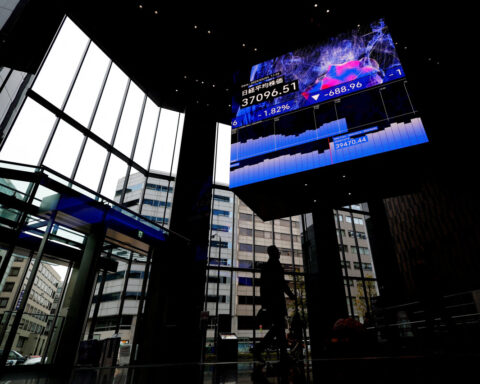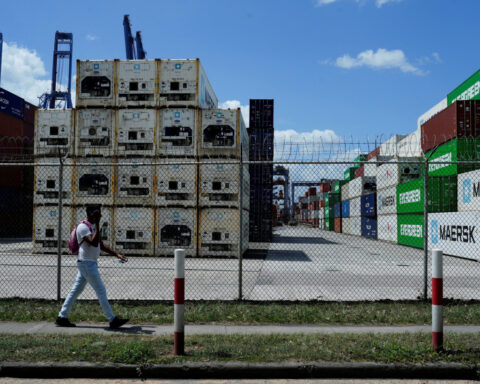TAIPEI, Taiwan (AP) — Automakers including Tesla, General Motors, Volkswagen and Toyota are failing to ensure they are not using forced labor as part of their China supply chains, a report released Thursday by Human Rights Watch says.
The U.S.-based nonprofit linked some of the world’s largest car manufacturers to aluminum allegedly produced with forced labor by Uyghurs and other ethnic minorities in China’s western Xinjiang region and other parts of the country.
China is accused of running labor transfer programs in which Uyghurs and other Turkic minorities are forced to toil in factories as part of a longstanding campaign of assimilation and mass detention.
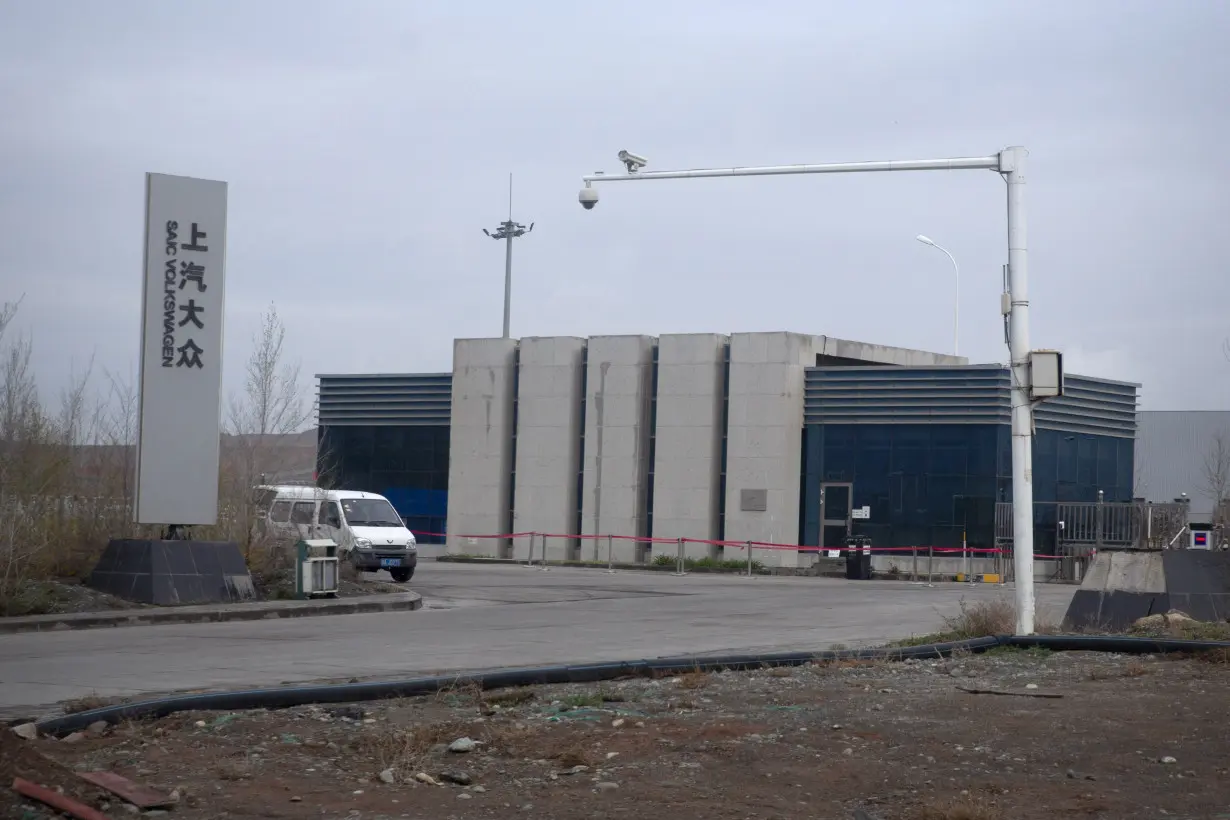
A United Nations report in 2022 found China may have committed crimes against humanity in Xinjiang, where more than 1 million Uyghurs are estimated to have been arbitrarily detained as part of measures the Chinese government said were intended to target terrorism and separatism.
The Chinese Foreign Ministry did not immediately answer questions about the report sent by fax by The Associated Press.
The report links aluminum –- a material used in dozens of car parts –- to the labor transfer programs, where workers reportedly face ideological indoctrination and limited freedom of movement. The report is based on company statements, Chinese government documents and previous research by Human Rights Watch and other organizations.
Since 2022, the United States has required importers of any goods produced in Xinjiang to prove they were not made with forced labor to avoid penalties.
The Human Rights Watch report argues that when it comes to aluminum from Xinjiang, its origins are difficult to track, especially when it is shipped to other parts of China and made into alloys.
More than 15% of China’s aluminum supply and about 9% of the global supply originates in Xinjiang, according to industry reports. The global automotive industry uses it for parts ranging from vehicle frames to wheels and battery foils.
China became the world’s largest car exporter last year and is the biggest manufacturer of battery-powered electric cars. The companies listed in the new report also include Chinese electrical vehicle giant BYD.
Global demand for aluminum is projected to double between 2019 and 2050, due in part to the growing popularity of electric vehicles, according to the International Aluminum Institute, a U.K.-based industry group.
“China is a dominant player in the global car industry, and governments need to ensure that companies building cars or sourcing parts in China are not tainted by the government’s repression in Xinjiang,” said Jim Wormington, a senior researcher at Human Rights Watch. “Doing business in China should not mean having to use or benefit from forced labor.”
The report alleges that foreign carmakers have buckled under the Chinese government’s pressure and allowed laxer control of their China operations than in other countries, which increases the risk of using forced labor in their supply chains.
Most foreign carmakers in China operate as joint ventures with Chinese firms due to government restrictions in key sectors.
Toyota said in a statement it would closely review the Human Rights Watch report. The company added that “regard for human rights” is part of its core values. “We expect our suppliers to follow our lead to respect and not infringe upon human rights,” it said.
Volkswagen said it has a risk management system in place for due diligence in procuring raw materials and it directly commissions its China suppliers. It added the company immediately investigates any allegations of forced labor and is looking for new solutions to prevent it in its supply chains.
Volkswagen operates a plant in Xinjiang as part of a joint venture with Chinese state-owned carmaker SAIC Motor. An audit commissioned by the German carmaker last year found no signs of forced labor at the Xinjiang plant.
General Motors, Tesla and BYD did not immediately answer emailed questions about the allegations.
Tesla owns a factory in Shanghai where it builds cars for both the Chinese and international markets. The company told Human Rights Watch it had tracked its supply chain back to the mining level and had not found evidence of forced labor. However, it did not specify how much of its aluminum came from unknown sources and could be linked to Xinjiang.

 Trump has begun another trade war. Here's a timeline of how we got here
Trump has begun another trade war. Here's a timeline of how we got here
 Canada's leader laments lost friendship with US in town that sheltered stranded Americans after 9/11
Canada's leader laments lost friendship with US in town that sheltered stranded Americans after 9/11
 Chinese EV giant BYD's fourth-quarter profit leaps 73%
Chinese EV giant BYD's fourth-quarter profit leaps 73%
 You're an American in another land? Prepare to talk about the why and how of Trump 2.0
You're an American in another land? Prepare to talk about the why and how of Trump 2.0
 Chalk talk: Star power, top teams and No. 5 seeds headline the women's March Madness Sweet 16
Chalk talk: Star power, top teams and No. 5 seeds headline the women's March Madness Sweet 16
 Purdue returns to Sweet 16 with 76-62 win over McNeese in March Madness
Purdue returns to Sweet 16 with 76-62 win over McNeese in March Madness
